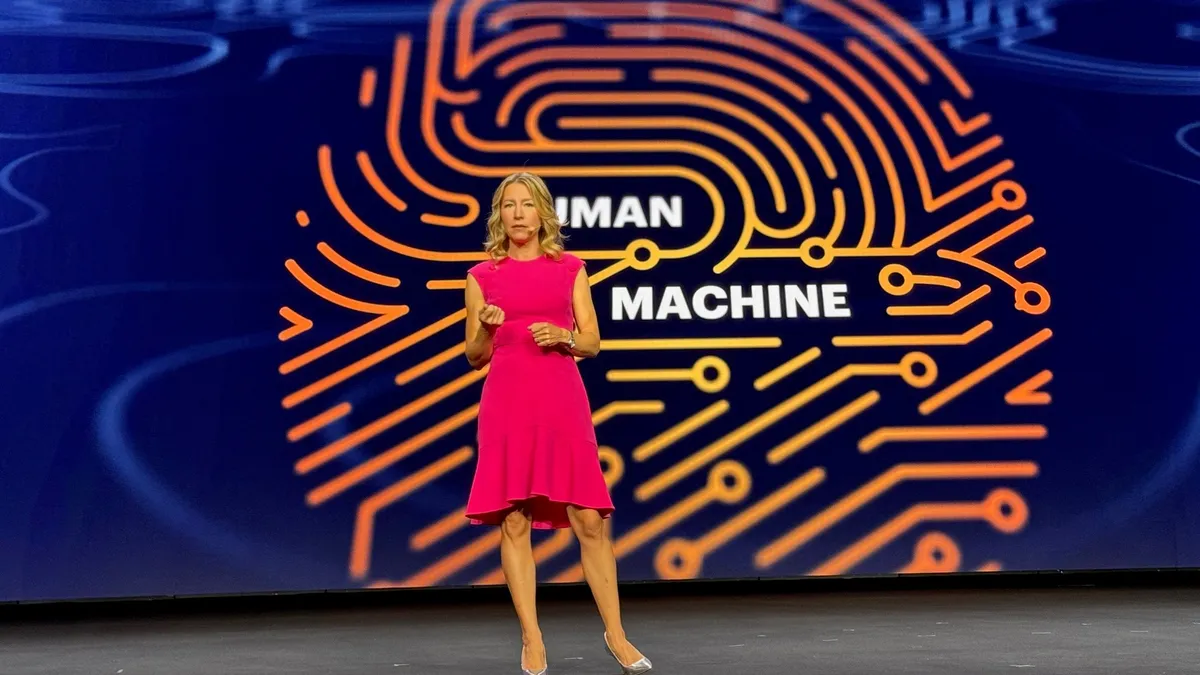ORLANDO, Fla. — CIOs are at the forefront of a “profound shift” in how work gets done as machines are positioned more as teammates, tutors or guides and less as tools and technology, according to Mary Mesaglio, distinguished VP analyst at Gartner.
The move toward integrating generative AI has spurred a change greater than simple marketing language updates that try to capitalize on the hype. Technologists are familiar with general chatbots powering self-service channels and tools, including GitHub’s Copilot, being championed as assistants. But embedding generative AI carries much more value than past solutions, according to Gartner.
“We are moving from what machines can do for us to what machines can be for us,” Mesaglio said in the opening keynote at the Gartner IT Symposium/Xpo in Orlando, Florida with more than 8,000 CIOs and IT executives in attendance.
It’s a shift that extends beyond IT and will require CIOs to become more integrated with other business units as the technology touches more workers.
“What we’re seeing is that AI is not just an IT initiative, it’s an enterprise initiative,” said Mesaglio. “To succeed, you need the whole executive team to play.”
The pressure is mounting for technology leaders, who are tasked with making the promises of generative AI a reality. More than three-quarters of CIOs and technology leaders worldwide are focused on opportunities to enable workers to become faster and more efficient with AI, according to Gartner.
Success hinges on preparation. The potential benefits that draw enterprises into the tech shouldn’t eclipse the need for established principles, data architectures and security posture to guide implementation plans.
“There will be all sorts of unforeseen consequences,” Mesaglio said. “What this means is that you need to think ahead of time about what lines you won’t cross.”
As new risks emerge and are identified, new strategies to mitigate them will crop up as well. The best way to chart a path forward, according to Gartner, is to dig in and establish rules and security safeguards to protect the organization from threat actors. Organizations also need to empower workers to find value in adoption.
Gartner predicts nearly all — 9 in 10 — companies will have adopted generative AI by 2025, though only 9% of organizations have an AI vision statement with established principles in place. More than one-third of companies had no plans to create ground rules.
Despite ample promises, generative AI successes are not guaranteed.
“We predict that over the coming year, people will be disappointed that either experiments fail or lose money,” said Don Scheibenreif, distinguished VP analyst at Gartner, during the keynote.












